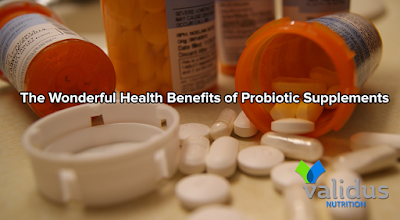Choosing the Right Probiotics Supplements Is the Key to Ensure Proper Digestion
Have you ever thought about what is going into your body each day? If not, then you should. One of the main ways to feel and be healthier is eating nutritious food and making sure your GI (gastrointestinal) tract has the right tools to digest and absorb nutrients. The GI tract, which includes the stomach and intestines, works to digest food and eliminate waste. A variety of good bacteria, called Probiotics bacteria, can help to keep the digestive running as well as digest food, process waste, and keep take care of bad bacteria which causes disease and illness.
Although some kinds of bacteria do cause illness and disease in humans such as strep throat, the majority of bacteria do not cause disease. Instead, they are actually beneficial and are used in the manufacturing of food and beverages like buttermilk, yogurt, cheese, sausage, and acidophilus milk. These same kinds of good bacteria can also be found in our intestines, where they help keep the digestive system running by digesting food and processing waste. Probiotics, or live bacteria that is non-toxic and does not cause disease, are found in yogurt, intestines, and most natural supplements.
Up until the middle of the last century, bacteria found in food ingredients naturally were used to make fermented food products such as cheese. This process was known as wild fermentation. However, this process is no longer used, as the Probiotics bacteria found in food and natural nutritional supplements now are harvested through a highly controlled fermentation process resulting in high numbers of bacteria and ensuring quality and purity of the bacteria.
Probiotics supplements contain the Probiotics bacteria that are very important for digestive health. Normal micro flora (intestinal bacteria) is associated with good health, as an imbalance in this natural micro flora is linked to various disease states including yeast infections and cancer. By eating foods or taking a nutritional supplement containing Probiotics bacteria, one can help support and modify the composition of the intestinal bacteria. These bacteria will offer protection against disease-causing bacteria, and stimulation of the immune system.
Lactose is an important sugar that is converted to lactic acid by lactic acid bacteria. Lactose intolerance results when there is an inability to digest lactose because of a failure of the small intestine mucosal cells to produce lactase, which is an enzyme needed in order to digest lactose. This is often caused by genetics, gastrointestinal disease, or a decline in a number of intestinal lactase levels associated with aging. People who are deficient in lactase accumulate non-absorbed lactose in the GI tract, drawing water and electrolytes into the gut and speeding waste through the intestines, which lead to bloating, cramping, and diarrhea. About 50 million people in the U.S. have partial or complete lactose intolerance. Lactic acid bacteria have been shown to help the breakdown of lactose by enhancing the activity of lactase and improving lactose digestion and tolerance.




Comments
Post a Comment